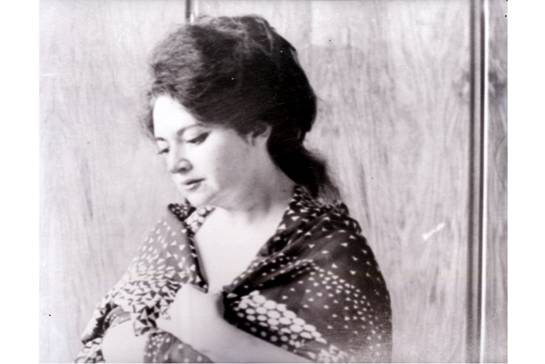 When I was just married my mother-in-law wondered and complained all the time: “Your hands are so gentle and small!” She even showed the gloves I had been wearing before my marriage to our entire neighborhood. “Look at these gloves! They’re like a doll’s. How will these hands work?”
When I was just married my mother-in-law wondered and complained all the time: “Your hands are so gentle and small!” She even showed the gloves I had been wearing before my marriage to our entire neighborhood. “Look at these gloves! They’re like a doll’s. How will these hands work?”
The neighbor women were examining the gloves, sighing and laughing.
“Don’t worry!” they calmed my mother-in-law, “Your daughter-in-law is a beauty instead!”
“Beauty! Her beauty does not feed us!” My mother-in-law retorted in irony, “We need hands that can work!”
The yard where we lived was large. There were divans in front of small houses. From early spring to late autumn women used to cook there, wash and thrash the wool, sew their blankets, patch and knit, and everything they did was in front of everybody’s eyes. They would always find an excuse to come to our couch and watch me work next to my mother-in-law, chopping potatoes or cutting greens.
“Oh, God,” they sighed, “Such beautiful hands! They almost look artificial! It would be a pity to damage them.”
“Work never damages anything,” my mother-in-law would scold them.
Once a Kurdish woman brought sheep yogurt to our yard. She was not beautiful: she had bushy eyebrows and hard, chapped hands.
“Vardukh,” uncle Petros, my mother-in-law’s brother said, “If she were your daughter-in-law, she would have done all the work in a second.”
My mother-in-law kept silent, she neither agreed nor disagreed.
Uncle Petros was probably joking, but I couldn’t help it and cried in the woodshed for a long time.
A year passed, and I had a child. Once we were eating around the table. My mother-in-law had placed meat rissoles and fried eggplants on my plate. I ate it all and wanted some more, but felt embarrassed. I finally dared and directed my fork towards the plate with rissoles in the middle of the table.
“Maralo?” My mother-in-law exclaimed.
Confused, I took my hand away. Everybody looked at me in astonishment, then at my mother-in-law. I turned red.
“Maralo,” my mother-in-law repeated more calmly, but also excited, “your hands seem to be bigger.”
Everyone looked at my hands.
“They really do,” my father-in-law said with a kind of joy. “They look much bigger, don’t they, Vardukh?”
My mother-in-law stood up, went to the wardrobe and came back with my famous gloves.
“Come, put them on,” she said.
My left hand hardly fit into the glove, but the right one… the delicate lace of the right glove stretched out and tore.
“I swear on this piece of bread!” My mother-in-law exclaimed victoriously. “They really did get bigger!”
My father-in-law tapped my shoulder joyously.
“It’s true, knock on wood! Shall we drink to the occasion, Vardukh?”
He went to the cellar with firm steps and brought out a bottle of red wine.
“Here’s to my daughter-in-law, may she finally have proper hands,” he said raising his glass.
We clinked our glasses and drank the wine. I felt good.
Time passed. Now we don’t live in that old yard anymore; we live in a new four-story house. I have four children, and a few grandchildren. I save my “doll” gloves as relics that caused so much sorrow to my mother-in-law and amused the neighbors. My hands became hard, the joints swelled, manicure and creams have become useless…
“They have turned into worker’s hands,” my old mother reproached me once. “At least put some glycerin on them.”
But I am happy with my hands, even if sometimes I am forced to hide them from other people’s eyes. What would I do without them in this big family?
Every morning I plan out the hands’ jobs on paper. Finishing one job I move on to another. What else should I do? Then what? Anything else?
Sometimes while cleaning the floor or taking dust from the furniture, I stand in front of the photograph of my mother-in-law’s, now deceased, and show her my hands.
“Look,” I say calmly, “do you see what my hands turned into? Now they are the hands of a working woman! But you, being so conservative, woven completely of traditions, also being so well-off, never considered it worthy to put a wedding ring on your young daughter-in-law’s finger, not even a simple one… Perhaps now you will consider me worthy of that?”
My mother-in-law keeps silent; my monolog lasts several minutes. A duster in my hand, I am passing from the dresser to the record-player, from there – to the bookshelves, forgetting the old, typical female adage, which seems so small among the big and deep wounds…
“Faster, faster!” I tell my hands to rush.
Then I compliment myself: “Well done!”
Shouldn’t someone praise them finally?
Translated by Artsvi Bakhchinyan

